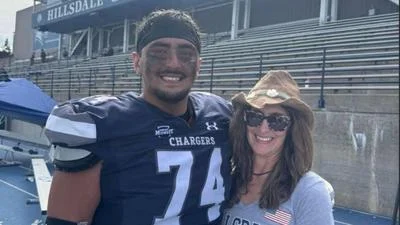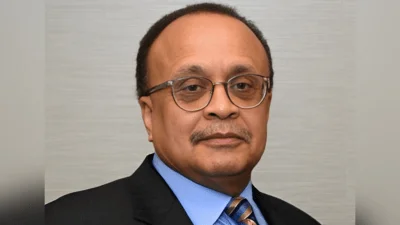Sen. Kimberly Lightford | Facebook
Sen. Kimberly Lightford | Facebook
Gov. J.B. Pritzker on Monday signed into law the Education and Workforce Equity Act that has been regarded as transformative by its supporters.
Pritzker joined other elected officials at Proviso East High School in suburban Maywood to sign the bill into law, which seeks to improve access and equity across the state’s education system.
“As I see it, our work isn’t done until equity and fairness is a guiding principle at all of our schools,” the governor said, as reported by WTTW News, “until every child has the educational tools available to them that will allow them to attain the future that they dream of.”
Senate Majority Leader Kimberly Lightford (D-Maywood), who chairs the Illinois Legislative Black Caucus called the bill transformative and a necessity for a better future.
"This is my moment of peace,” said Lightford, according to WTTW news. “My anger is gone … because I know that this legislation is transformative and filled with hope for our children.”
"Without it, we lack the foundation on which all other pillars will be built up to succeed,” she added. “You want safer neighborhoods? Education. You want better paying jobs? Education. You want less government reliance? Education.”
This legislation will support public schools and make college education more affordable, while it also helps investment in vocational training and expand the teacher workforce across the state, advocates say.
Additionally the bill will see expansion in access to Illinois’ Early Intervention program by letting children who turn 3 years old between May and August continue receiving services until the beginning of the next school year. The Illinois State Board of Education will be required to assess all public school children entering kindergarten each year to measure their readiness.
The new law will see new graduation requirements added to better equip students in computer literacy, laboratory science and foreign languages. Black history coursework will now include pre-enslavement of black people, why black people came to be enslaved and the American civil rights movement.
Other changes according to WTTW include:
— A 22-person Inclusive American History Commission.
— A Whole Child Task Force that will focus on expanding trauma-responsive school services.
— An increase to the percentage of grant funds prioritized for black men.
— New priority in grant funding for students who want to become bilingual teachers.
— Expansion of the Illinois Teaching Excellence Program to cover programs working with diverse candidates.






 Alerts Sign-up
Alerts Sign-up